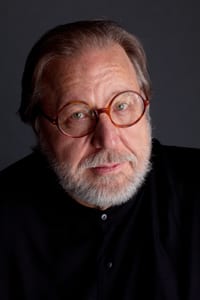by Chuck Robison
Tough question. Perhaps viewing this as a question of leadership makes it easier to answer. However, that demands an insight into who is leading and who is following.
Things are not what they used to be nor are they, today, what they appear to be. In the olden days, we acted like a Democracy, and prided ourselves on evidence that our views were represented in the decision making of our National, State and local governments.
In this century we have been slowly manipulated into not recognizing and not acting upon what is happening to our nation. We no longer have a Democracy. We now live in an Oligarchy where a few billionaires and a few huge corporations call all the shots. Our Supreme Court prefers to think of them as persons, you know, just folks. It is more accurate to refer to these two groups as The Owners. It is a rigged system and neither we nor our churches have much to say in what goes on.
The Owners’ puppet politicians gently nudge the majority of Churches along paths set for them to support whatever The Owners want. This gets worse; there are consequences. The Churches have lost their once powerful and independent leadership role.
Sixty years ago, the Churches, exercising their moral authority, were in the front ranks of movements to improve our lives. Preachers, Rabbis and Priests and common folks like you and me marched arm in arm to insure civil rights, to stop an insane war, to improve the lives of those in poverty and to provide education for those whose futures depended on it. Today, we hardly talk about moral authority.
Today, we have become jaded, fearful and selfish. The greed at the top has finally trickled all the way down to us. We didn’t just close abortion clinics and stop the implementation of the Affordable Care Act here in Texas; we stopped poor people from getting medical help. We didn’t improve education; we just made it impossibly expensive. We’re not even going to have a say in the likelihood that oil fracking is creating irreversible damage to our environment. In fact, our Texas State Legislature just passed a law, written by Big Oil, which prohibits any county or local Texas government from enacting laws that are intended to prohibit fracking in their jurisdictions. Today the Churches fight these and many other injustices with a deafening silence.
The Churches have lost their once powerful voice and you can see it clearly in just one simple observation. Ask your church leadership how many weddings take place in the church today compared with 1990. Weddings, once high sacred religious moments held in our sanctuaries, are now conducted at parties in vacation destinations by mail order officiants.
For me, the answer to this roundtable question is this: Until our Churches boldly use their moral authority and spiritual power to confront The Owners and stand up for the poor, the downtrodden, the politically disenfranchised and our environment, we will be forced to acknowledge that we really do not care to follow the teachings of our Lord, The Christ. And so it will be.


I agree that churches must “stand up for the poor, the downtrodden, the politically disenfranchised and our environment.” However, before “the church” stands up there needs to be some conversations within the church. In all of the churches I have served, the congregation has been quite divided about how exactly we can “speak up for the poor…”. To “move forward” and forget those who disagree with me is to lose half a congregation. To simply do nothing and to minister to “spiritual needs” isn’t much better. I suspect that for a congregation to “speak up for the poor” is to consider some kind of action on their behalf rather than a political voice. Perhaps, there are congregations that are so united they can speak together. I do not disagree with your assertion. I admit I have been timid in the past and want to move the church to a better place. I also agree that the church is being silenced by larger forces. What can we do?
Hey…is anyone reading this? Chuck raises an important question. Does these “discussions” really work or do we just read them and not comment. I think if you are reading this, you need to say something!! Chuck did not get me to say this. I simply think someone needs to continue this conversation. OK??